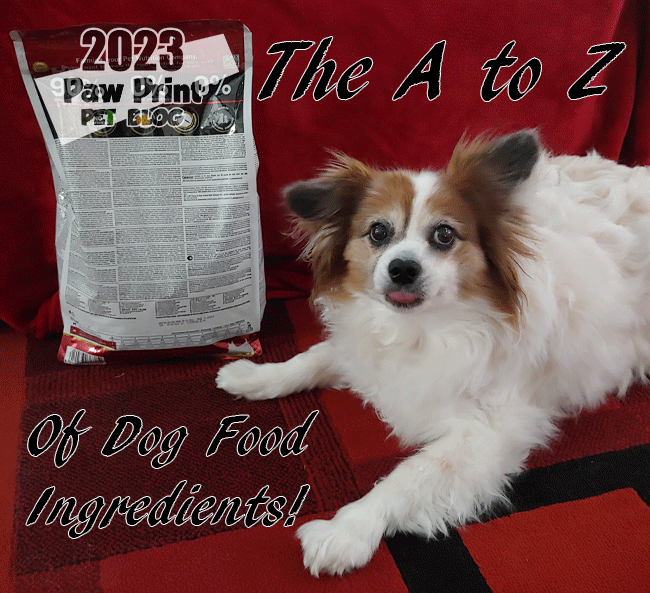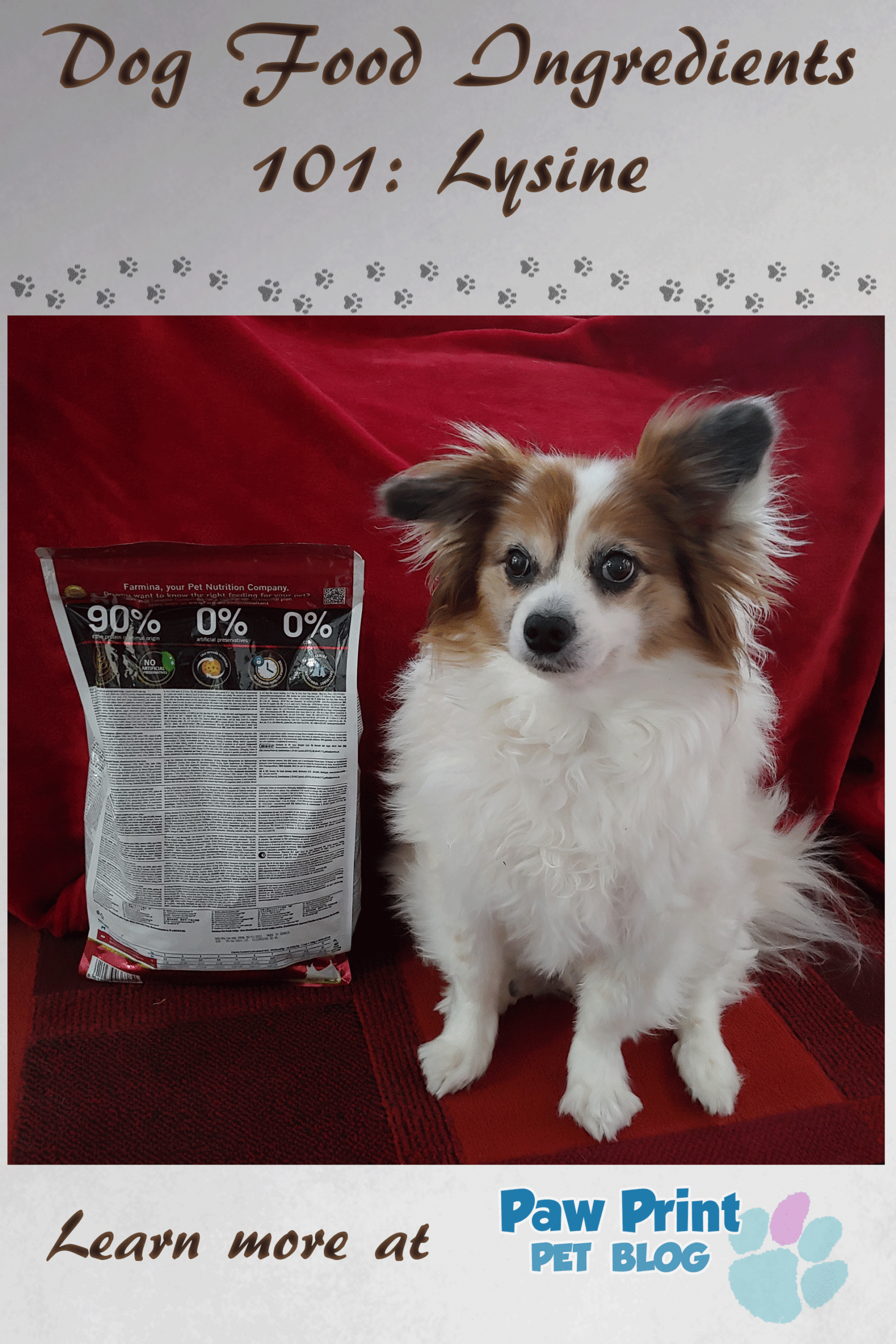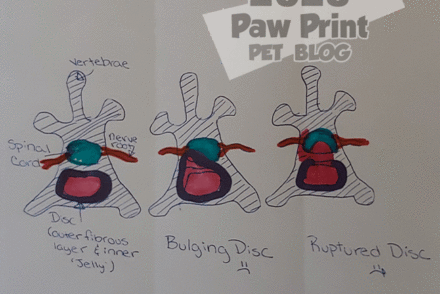 L is for lysine. If you haven’t been following my blog lately, I’ve been participating in the 2023 April blogging from A to Z Challenge. It’s hard to believe that the first two weeks of the challenge are almost already behind me! My theme this year is “dog food ingredients”. Almost every day in April, I’ll dive deep into learning more about specific ingredients used to create commercial dog foods. Coming up with food ingredients for “j” (juniper berries) and “k” (kelp) both felt like more of a challenge than the rest of the letters have been. Luckily finding an ingredient that starts with “l” wasn’t as hard.
L is for lysine. If you haven’t been following my blog lately, I’ve been participating in the 2023 April blogging from A to Z Challenge. It’s hard to believe that the first two weeks of the challenge are almost already behind me! My theme this year is “dog food ingredients”. Almost every day in April, I’ll dive deep into learning more about specific ingredients used to create commercial dog foods. Coming up with food ingredients for “j” (juniper berries) and “k” (kelp) both felt like more of a challenge than the rest of the letters have been. Luckily finding an ingredient that starts with “l” wasn’t as hard.
This post is part of our 2023 April blogging from A to Z Challenge! Join us this month as we go through the alphabet, A to Z, learning more about some of the ingredients that are commonly (or not so commonly, in some cases) found in our dog’s food!
Post Contents:
What is Lysine?
Lysine is an amino acid. Lysine helps dogs to produce antibodies, hormones, and enzymes. It boosts the immune system and plays a role in calcium absorption as well as collagen production.

Why is Lysine Added to Dog Food?
Dog’s bodies are not able to synthesize lysine, so they must obtain it from the food they eat. Lysine deficiency in dogs, however, is rare because it can be obtained by eating most meats. Many dog foods also add supplemental lysine.
Cons of Feeding Lysine to Dogs:
Dog’s bodies require lysine to function properly. However, dog’s rarely require lysine supplementation beyond what is available in their food.
Lysine overdose can lead to kidney failure in dogs. Studies have suggested that the amount of lysine needed to be harmful to dogs would be over 2,000mg per pound. That’s a lot of lysine! Dosages this high are only really a risk if your dog somehow overdoses on lysine supplements.
Benefits of Feeding Lysine to Dogs:
Dogs need lysine. Thankfully, it’s not usually a nutrient dog owners have to think much about because, as long as you are feeding a healthy, balanced diet, dogs get all the lysine they need from their food.
Additional supplemental lysine is sometimes prescribed for cats suffering from viral infections (such as feline herpesvirus) but it isn’t as commonly used this way in dogs.
So What’s the Verdict on Lysine? Is it Safe as a Dog Food Ingredient?
In the amounts it would be present in dog food lysine is not only safe, but a nutritional requirement for dogs. I wouldn’t worry about supplemental lysine being listed as an ingredient in dog food. Lysine is only dangerous to dogs when it’s consumed in very large amounts, amounts so large, in fact, that it would be difficult for most dogs to consume enough lysine for it to become a danger. If you take lysine supplements yourself, or give them to a pet, make sure to store the supplements out of reach of your dog.






1 Comment
L-lysine helps with cold sores in humans. Glad dogs get it normally from their food.
Beth
https://bethlapinsatozblog.wordpress.com/